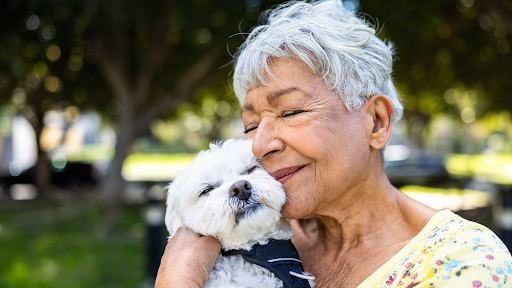As seniors age, the role of family becomes increasingly significant in maintaining their mental well-being. Here’s why family support is crucial for the mental health of seniors:

1. Emotional Support:
Family members provide a strong emotional support system for seniors, offering love, encouragement, and reassurance during challenging times. Knowing they have someone to turn to in times of need can significantly reduce feelings of isolation and loneliness.
2. Sense of Belonging:
Being part of a family gives seniors a sense of belonging and connection to others, which is essential for their mental health. Family gatherings, traditions, and shared memories create a sense of identity and purpose, fostering feelings of happiness and contentment.
3. Social Engagement:
Family interactions encourage social engagement and participation in meaningful activities, which are vital for maintaining cognitive function and emotional well-being. Whether it’s a weekly family dinner or a holiday celebration, these gatherings provide opportunities for seniors to connect with loved ones and stay mentally stimulated.
4. Caregiver Support:
In many cases, family members serve as caregivers for seniors, providing essential support with daily tasks, medical care, and emotional assistance. Having a dedicated caregiver within the family ensures seniors receive the personalized care and attention they need to thrive physically and mentally.
5. Advocacy and Empowerment:
Family members often serve as advocates for seniors, ensuring their voices are heard and their needs are met within the healthcare system and community settings. This advocacy empowers seniors to actively participate in decisions regarding their health and well-being, promoting a sense of control and autonomy.
6. Prevention of Elder Abuse:
Family involvement helps protect seniors from elder abuse by providing a supportive environment where they feel safe and valued. Family members can detect signs of abuse or neglect early on and take appropriate action to address the situation, safeguarding the mental and emotional health of seniors.

In conclusion, family plays a vital role in supporting the mental health of seniors, providing emotional support, social engagement, caregiver assistance, advocacy, and protection from abuse. By nurturing strong family bonds and fostering a supportive environment, families can help seniors lead fulfilling and mentally healthy lives as they age.
For many seniors, having a furry friend by their side isn’t just about companionship—it’s also about experiencing a multitude of physical, emotional, and mental health benefits. Here’s a closer look at how pets can positively impact the lives of older adults:

1. Companionship and Reduced Loneliness:
Pets provide constant companionship, which can be especially valuable for seniors who live alone or are isolated from friends and family. The presence of a pet can alleviate feelings of loneliness and provide a sense of purpose and responsibility.
2. Stress Reduction and Relaxation:
Interacting with pets has been shown to lower stress levels and promote relaxation. Simply petting a dog or cat can trigger the release of feel-good hormones like oxytocin and serotonin, leading to a calmer state of mind.
3. Increased Physical Activity:
Owning a pet often encourages seniors to stay active and engage in regular exercise. Whether it’s walking a dog, playing fetch with a cat, or caring for a bird or fish, having a pet promotes physical movement and helps maintain mobility.
4. Improved Mental Health:
Pets can have a profound impact on mental well-being by providing emotional support and companionship. For seniors dealing with depression, anxiety, or cognitive decline, the presence of a pet can offer comfort, reduce symptoms, and improve overall mood.
5. Sense of Purpose and Routine:
Caring for a pet gives seniors a sense of purpose and structure to their day. Whether it’s feeding, grooming, or simply spending time with their pet, these daily activities create a routine and provide a sense of fulfillment.
6. Social Interaction and Connection:
Pets are natural conversation starters and can facilitate social interactions with neighbors, friends, and other pet owners. Taking a dog for a walk or visiting a dog park can lead to new friendships and a sense of community.
7. Enhanced Cognitive Function:
Interacting with pets can help stimulate cognitive function and improve memory and problem-solving skills. Activities like training a dog or teaching tricks to a bird can keep the mind sharp and engaged.
Detailing the Mental Health Benefits for Seniors with Pet

The presence of pets in the lives of seniors not only brings joy and companionship but also plays a crucial role in improving mental health. Here are some ways pets can benefit the mental health of seniors:
1. Stress and Anxiety Reduction:
Interacting with pets can help reduce stress and anxiety levels. Studies show that the simple act of petting an animal can lower cortisol levels, the stress hormone, and increase the production of endorphins, the feel-good hormones.
2. Alleviation of Depression Symptoms:
The constant presence of a pet can provide comfort and emotional support, helping to alleviate symptoms of depression. The sense of responsibility and purpose associated with caring for a pet can also boost self-esteem and feelings of accomplishment.
3. Encouragement of Socialization:
Having a pet often encourages seniors to get out of the house and interact with other people. Whether walking a dog or attending pet-related events, seniors have the opportunity to connect with the community and form new friendships, which can significantly improve their emotional well-being.
4. Reduction of Loneliness:
For seniors who live alone or are far from their families, the presence of a pet can be a vital source of companionship and emotional support. Pets offer a comforting presence and unconditional love, helping to fill the void caused by loneliness.
5. Promotion of Emotional Resilience:
The relationship between a senior and their pet can strengthen emotional resilience by providing a sense of stability and security. Animals are known for their ability to sense their owners’ emotions and offer comfort in times of difficulty, which can help seniors better cope with life’s challenges.
In summary, pets play a vital role in promoting the mental health of seniors, offering comfort, companionship, and emotional support. Whether it’s a cat purring in its owner’s lap or a dog playfully romping in the park, the presence of a pet can bring joy and emotional stability to seniors, enhancing their quality of life in profound and meaningful ways.
In conclusion, the bond between seniors and their pets is truly special, offering a wide range of physical, emotional, and mental health benefits. Whether it’s the comforting purr of a cat, the enthusiastic wag of a dog’s tail, or the gentle chirp of a bird, the presence of a beloved pet can bring immeasurable joy and well-being to older adults.
Do you have a pet that brings joy to your life? Share your experiences in the comments below!